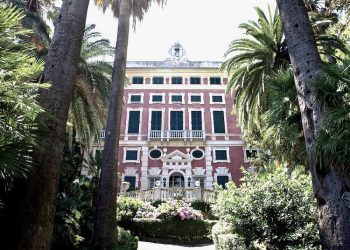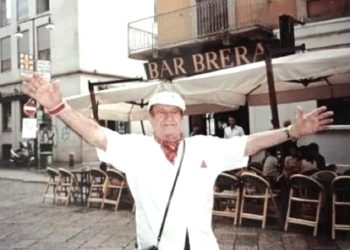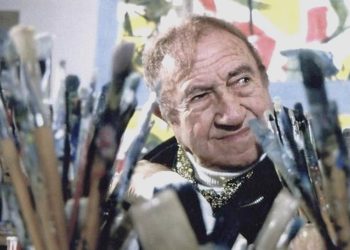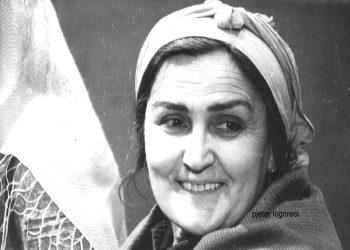From Giulio Meotti
Kadare: “We have our right to belong to the European family of peoples, thanks to our Catholic tradition buried by centuries of Islam and Communism”
Memorie.al / A great writer, not a scribbler like those who sign appeals and win the ‘Nobel’ prize. Ismail Kadare, the Albanian anti-communist who loved Europe, did not participate in the sung mass of relativism and was the author of a prophetic novel, about the Islamic siege, which today would never have been published. One by one, after Philip Roth, Cormac McCarthy, and Milan Kundera, the last truly great writers are departing, and we are left with the scribblers.
Ismail Kadare was the most important Albanian novelist of the 20th century, and he described his country by opposing the communist dictatorship (“a hell,” he wrote), which forced him to rewrite hundreds of pages of his novels.
Connected to Italy through the Divine Comedy, Kadare, who was often spoken of as a possible winner of the ‘Nobel’ Prize in Literature, died yesterday at the age of 88.
But Kadare was one of those rare, exiled, and humanist writers who understood what game was being played in our times. He did not “boast.”
He did not sign futile appeals, but in an article in Le Monde after the 2015 Paris attacks, Kadare wrote, on the contrary, that Europe has “not only the right but also the duty to defend itself, for its own sake and for everyone else’s.”
Kadare spoke of Europe as: “the continent that has given more than all others.” But he saw it as prey.
“Despite its shadow of a great woman, Europe has never been untouchable. In fact, it happened that two of its peninsulas – the Iberian Peninsula and the Balkan Peninsula – were violently taken in the centuries that preceded us.”
Kadare knew that he belonged to a people who had lost Europe twice, during the Ottoman occupation and the communist dictatorship. “We must tell the truth,” Kadare had written.
“We cannot deny that in three thousand years, Europe has produced 80 to 90 percent of spiritual treasures,” of philosophy, literature, art, democracy, and freedom of expression.
Spiritual treasures? The European Parliament has approved a resolution that says: Europe is just a heap of wrongdoings.
Kadare dreamed of a Europe that no longer exists and said that the future of his Albania also lay in the Europe of spirit and culture, because of its ancient European and Christian roots.
“We, Kadare wrote, have our right to belong to the European family of peoples, thanks to our Catholic tradition buried by centuries of Islam and Communism.” For this, Kadare was also accused of “Islamophobia.” As was the case when he received the “Jerusalem” Prize.
In the awarding of the ‘Nobel’ Prize in 2021 to the Tanzanian writer, Abdulrazak Gurnah, the keywords in the reasoning for the award were: “colonialism,” “refugees,” and “Koran.” Anders Olsson, writer and literary critic, who chairs the Nobel Committee, also spoke about the need to “abandon Eurocentrism.”
Kadare was exactly the opposite, a writer proud of Eurocentrism and who rejected the sung mass of multicultural relativism.
“To be left-wing means to see the Other, be they Malian or Chinese, heterosexual or homosexual, Catholic, Jew, or Muslim, gypsy or homeless, criminal or pedophile, as primarily similar to oneself and not different,” wrote Annie Ernaux, the French communist who, certainly, won the ‘Nobel’ Prize in 2022, instead of Kadare.
The Other is not the foreigner, but the Same who must be protected from our racism, and multiculturalism will liberate us from a society bound to its “roots.”
But to understand why Kadare did not win the ‘Nobel’, we must turn to his prophetic novel, completely forgotten in those few obituaries today in the conformist Italian press. Today, not only would it never be published, but if it were ever published, it would warrant a death sentence. Memorie.al
Giulio Meotti is a journalist for the newspaper Il Foglio (www.ilfoglio.it) since 2003. He is the author of many books, the latest of which translated into various languages are: The End of Europe (‘Capri’ Prize), The New Barbarians, The Sweet Rule, The Sex of Angels and the Forgetfulness of the West, Black Saturday, The Last Pope of the West.
The article above dedicated to Kadare and published in Italy one day after his death, was translated into Albanian by Zhirajr Mokini and was taken from Giulio Meotti’s Bulletin, with the author’s permission.




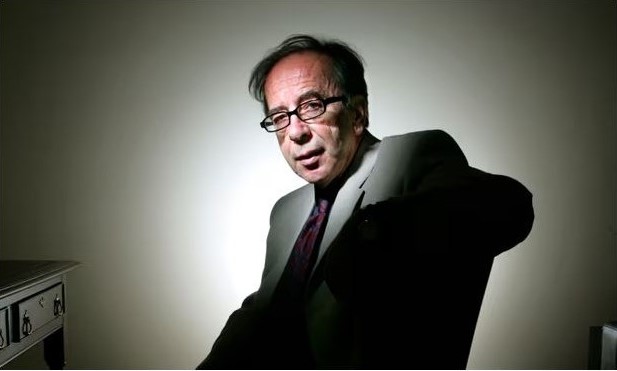

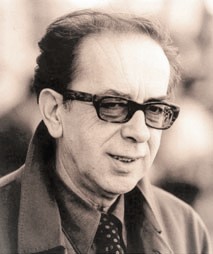

![“Count Durazzo and Mozart discussed this piece, as a few years prior he had attempted to stage it in the Theaters of Vienna; he even [discussed it] with Rousseau…” / The unknown history of the famous Durazzo family.](https://memorie.al/wp-content/uploads/2026/02/collagemozart_Durazzo-2-350x250.jpg)
